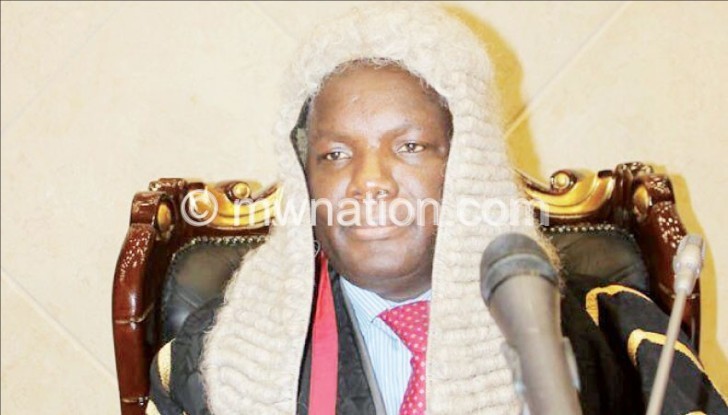Speaker intercepts Kalua’s summons, clarifies MPs’ immunity
Speaker of the National Assembly Richard Msowoya has reminded the public, as well as lawyers, that parliamentarians enjoy immunity from prosecution when the National Assembly is meeting.
Section 60 (1) of the Constitution grants MPs immunity from arrest, except in cases of treason and that what MPs say in the National Assembly would not be amenable to any action or proceedings in any court other than the august House.

Section 60 states that the Speaker, deputies and every MP except in cases of treason, shall be privileged from arrest while going to, returning from, or while in the precincts of the National Assembly or the Senate.
It is the Powers and Privileges Act which bars any lawyer or any public person from serving summons on any member of Parliament when meeting is in progress. The Speaker ’s reminder follows summons served on MP for Rumphi East, Kamlepo Kalua, on November 23 2016.
Msowoya said lawyers and the public should have in mind the provision of the Constitution as read with the Powers and Privileges Act. He has since directed officers of the House to refrain from receiving summons or any court documents.
“I hereby instruct all members of Parliament and all members of staff to refuse any summons directed to members of Parliament,” said Msowoya.
Nation on Sunday has established that the summons in question was obtained by Jappie Mhango, then Minister of Tourism (now Minister of Transport and Public Works), at the High Court in Lilongwe for alleged defamation following remarks Kalua made in an interview with Times Radio on March 20 2016.





